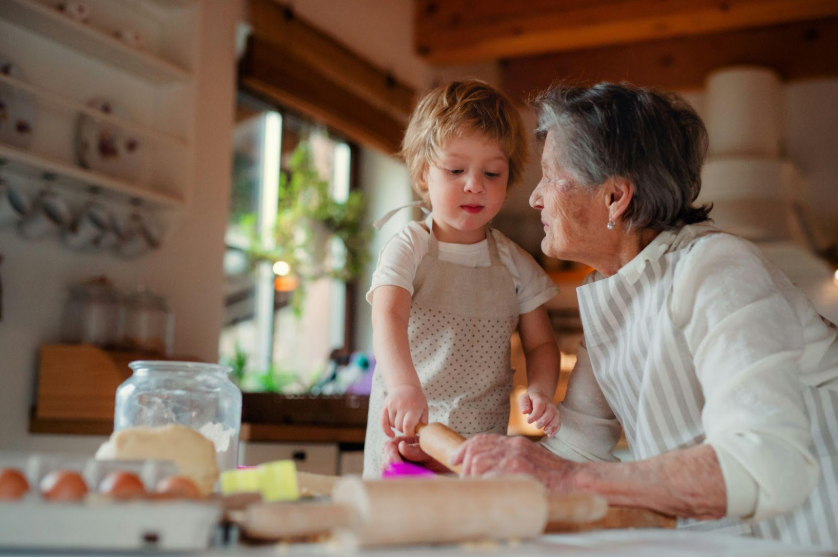The guidance handed down from grandparents carries a wisdom shaped by experience, hardship, and deep-rooted values. Their lessons, though spoken in a world quite different from ours, remain strikingly relevant today. In a digitally driven age, their emphasis on patience, hard work, kindness, and connection serves as a grounding force.
Whether it’s the way they approached responsibilities or the importance they placed on family, Coleman Reed Ledbetter says their legacy continues to influence how we navigate modern life. Listening to their stories or simply remembering their habits reminds us that some truths don’t fade with time.
Table of Contents
Why Their Words Still Matter
Grandparents grew up in a different time, often marked by fewer resources and greater challenges, which gave their words weight and perspective. Many of their lessons have stood the test of time because they focus on character and values, not trends. Whether it’s how to approach a problem with patience or the importance of keeping your word, these teachings continue to hold relevance.
The Value of Hard Work and Responsibility
Many grandparents believed that earning something made it more meaningful. Whether it was saving up for a new coat or waking at dawn to help with chores, the message was simple: nothing worthwhile comes without effort.
Stories about walking miles to school or working a summer job as a teenager weren’t just memories—they were lessons in accountability. They taught that responsibility isn’t just doing what’s required, but doing it with care and consistency. This mindset often helped them weather tough times and build stability. Even when the work was hard, there was pride in doing it well and not cutting corners.
Today, these ideas still apply. Setting goals, following through, and taking ownership of one’s actions remain just as valuable in classrooms, workplaces, and relationships. Though times have changed, the habit of showing up and doing your best is still one of the clearest paths to success.
Respect, Kindness, and Gratitude
Simple gestures like holding the door, greeting neighbors with a smile, or saying thank you were second nature to many grandparents. Respect wasn’t earned only by title or age, but by how someone carried themselves and how they treated those around them. They believed that everyone, no matter their role or background, deserved to be acknowledged and treated fairly.
They also placed importance on acknowledging what you have, whether it was a home-cooked meal or a hand-me-down coat. Gratitude wasn’t just expressed on holidays; it was woven into daily life, often through handwritten notes or shared stories over dinner. They viewed gratitude as a mindset that shaped how you saw the world, not just words to be said.
Helping others without expecting anything in return was another common trait. Whether it meant shoveling a neighbor’s walkway or sharing extra from the garden, these small acts built trust and camaraderie.
Patience
Many grandparents understood that not everything comes quickly—and that’s often a good thing. Whether it was tending a garden and waiting months for vegetables to grow or saving small amounts of money over time, they knew that steady effort often led to lasting results. Their lives moved at a slower pace, one that encouraged restraint.
They often approached life’s challenges with calm, choosing to pause before reacting. A disagreement wasn’t settled in a flurry of emotion but with time, space, and a willingness to listen. That kind of patience is rare today, but still deeply needed. It’s a quality that brings clarity when decisions feel rushed or overwhelming.
Staying Connected to Family and Community
Family wasn’t just a part of life—it was the center of it. Many grandparents prioritized regular gatherings, whether it was Sunday dinners, birthdays, or quiet visits just to check in. These moments, though simple, created strong bonds that lasted across generations. A shared meal or a phone call from across town wasn’t seen as a small gesture; it was a vital thread in the fabric of connection.
Outside the household, they also made time for neighbors and friends. Lending a ladder, watching someone’s children, or offering a ride to the store—all were common ways they stayed involved. Community wasn’t a distant idea; it was built through everyday acts of showing up and offering help. These habits created a sense of belonging and mutual care that extended beyond blood ties.
Keeping These Lessons Alive
The wisdom passed down doesn’t need to be locked away in old photo albums or fading letters. By embracing these values—being kind, showing up, working hard—we carry their lessons forward. It’s in how we speak to our children, how we treat strangers, and how we face challenges. Even small choices can make a difference. Writing a note by hand, cooking a family recipe, or helping without being asked—all of it adds up.












